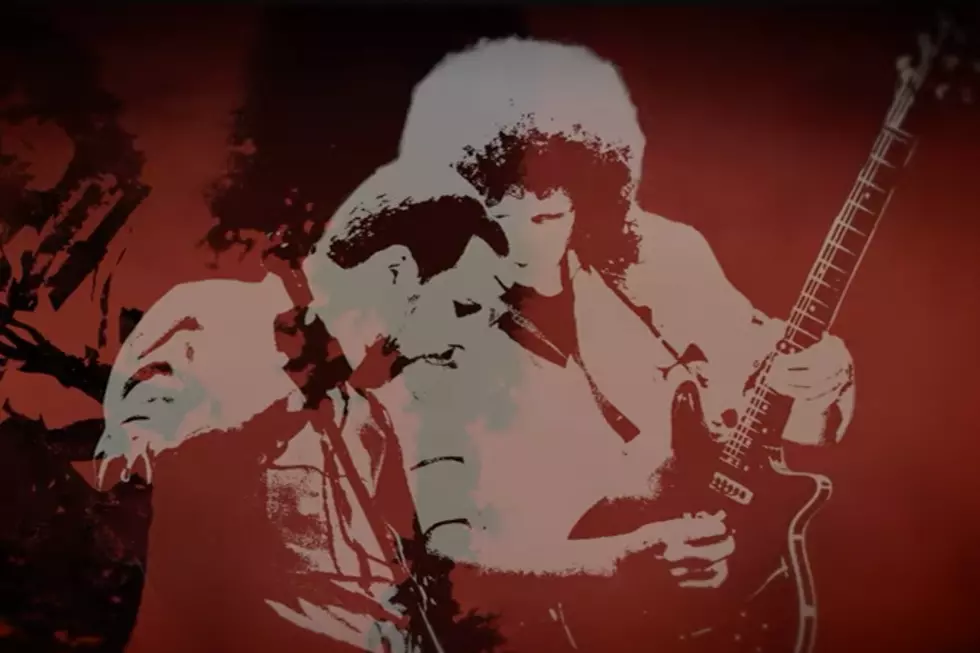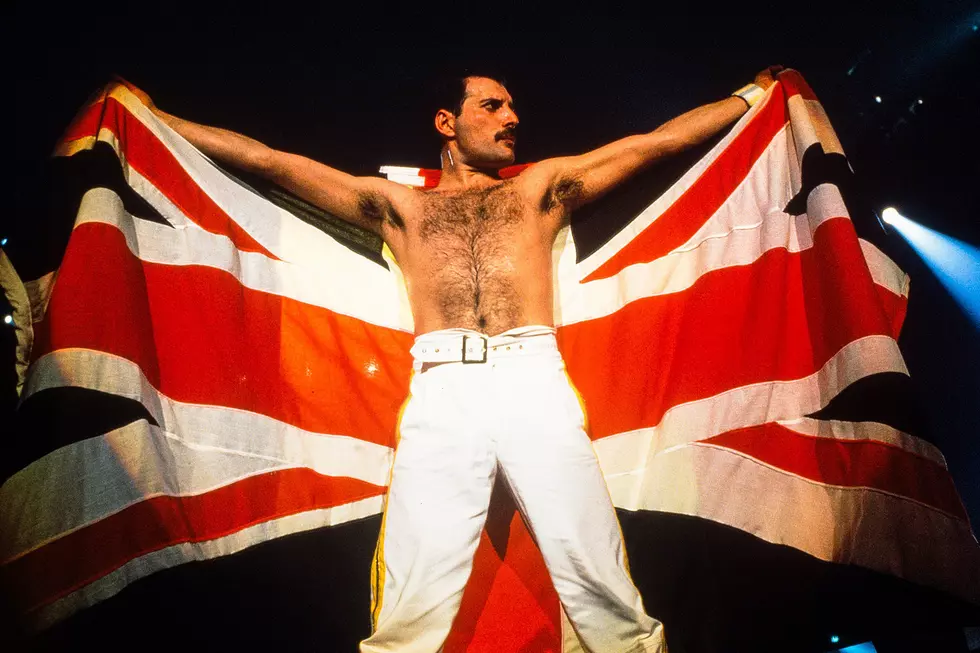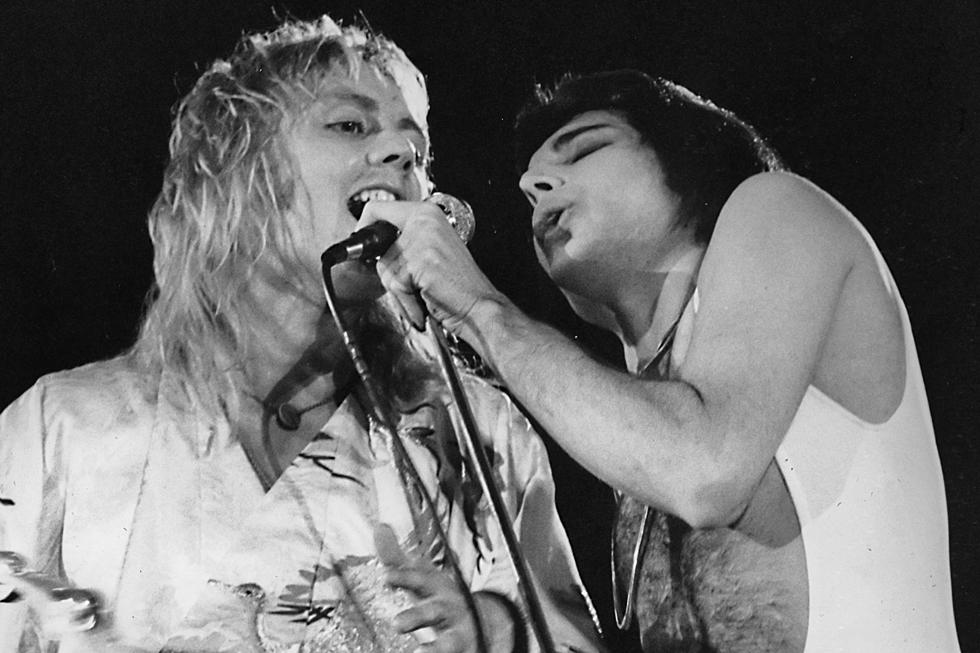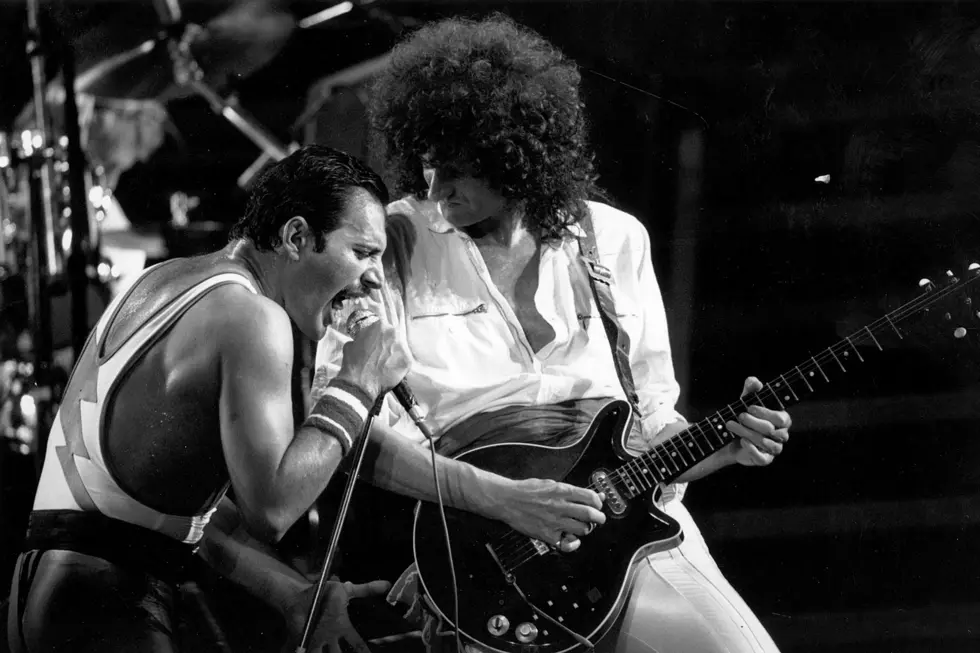
Why Freddie Mercury (Briefly) Went Solo With ‘Mr. Bad Guy’
Freddie Mercury's debut was the perfect solo album, in that it became an outlet for his inclination toward non-rock music away from Queen. Mr. Bad Guy never threatened his group's integrity; in fact, it may have ultimately gotten Queen back on track.
Released on April 29, 1985, the album found Mercury singing dance songs and anthem-sized ballads during a Queen hiatus, and handling all songwriting, as well as keyboards, orchestrations and some engineering duties. It served as a reminder of his rangy, often-overlooked skills in the studio, and as an expansion of the more lightly regarded elements of Queen's most recent LP, 1982's pop-focused Hot Space.
Only the expectations for a Freddie Mercury project were decidedly different. Queen had always balanced their dizzying array of influences with healthy dollops of straight-ahead guitar and drums. Mercury was, outside of a forgotten 1973 single, an unknown solo entity. More than that, he was clearly happy to be less than the sum of Queen's parts.
"He used to get pretty annoyed working with the others," Mr. Bad Guy co-producer Reinhold Mack said in Freddie Mercury: A Kind of Magic, "because there was always [Queen co-founder] Brian [May] saying, 'It needs to be more rock 'n' roll.'"
Mr. Bad Guy became a labor of love, as Mercury took almost two years to pick and choose which portions of his Queen legacy intrigued him most. In the meantime, he scored a No. 10 U.K. hit with the 1984 solo single "Love Kills," though May and their bandmate Roger Taylor appeared on that session.
"I don't think Freddie really wanted to go solo," Taylor said in A Kind of Magic. "It's just that he got an awful lot of money from CBS. When it came down to actually doing a solo album, he did sort of miss us. He used to ring me up, and I'd have to fly to Munich to do his background vocals."
Watch Freddie Mercury Perform 'I Was Born To Love You'
Mercury's care paid off when Mr. Bad Guy matched Hot Space's U.K. Top 10 finish, eventually going gold; "I Was Born to Love You" also became a No. 11 hit overseas. His attention to detail is reflected in the song narratives, which take on a much more personal lyrical focus than anything Mercury had ever committed to with Queen.
Clearly, however, Mercury's dedication to his main band remained. He dutifully dropped everything as Queen convened for 1984's The Works, an album that – after Mercury's interest in dance music had been sated – returned to the group's rock roots. Beyond May and Taylor's contributions, Mr. Bad Guy also included sideman Fred Mandel, who had earlier worked with May's Star Fleet Project and would also be featured on The Works.
Just a few months later, Mercury was fronting his old band once again when Queen took the stage at Live Aid. A hoped-for solo collaboration with Michael Jackson got lost along the way.
“We had three tracks in the can,” Mercury revealed in Mercury: An Intimate Biography of Freddie Mercury, “but unfortunately they were never finished. They were great songs, but the problem was time — as we were both very busy at that period. We never seemed to be in the same country long enough to actually finish anything completely.”
In the years since Mercury's 1991 death after a bout with AIDS, Queen's connection with Mr. Bad Guy has grown: Mercury's debut solo album has proven to be a treasure trove for posthumous releases. Two songs were later updated by Queen's surviving members for 1995's Made in Heaven, "I Was Born to Love You" and the title track. "There Must Be More to Life Than This," one of the unfinished tracks with Jackson, ended up on 2014's Queen Forever – as did the 1984 single "Love Kills."
Mercury later admitted a larger regret about those incomplete musical collaborations with Michael Jackson. "He used to come and see our shows all the time, and that is how the friendship grew," Freddie remembered in Mercury. "Just think, I could have been on Thriller. Think of the royalties I've missed out on!"
Queen Albums Ranked
You Think You Know Queen?
More From Mix 92.3










